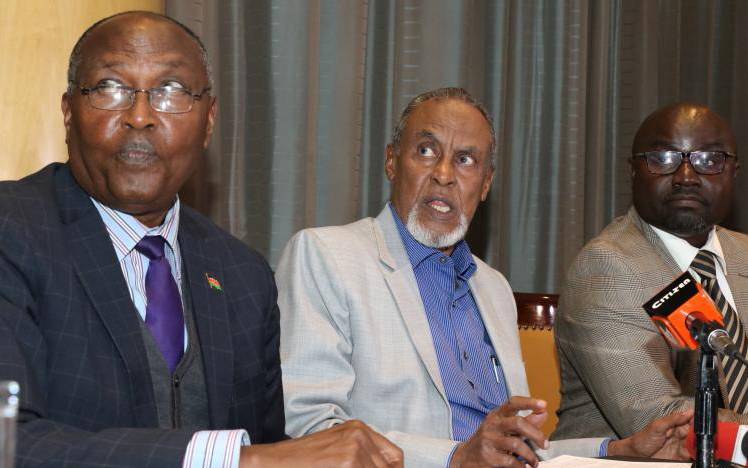×
The Standard e-Paper
Fearless, Trusted News

Building Bridges Initiative chairman Yusuf Haji (centre), Vice-Chair Adams Oloo (right) and the task force secretary Paul Mwangi (left) address the media in Nairobi on July 15, 2019. [Collins Kweyu, Standard]
In the fourth quarter of 2002, Kenya's business climate was the most uncertain globally according to a World Bank survey. On September 10, 2019, IMF's World Uncertainty Index (WUI) ranked Kenya as having the second-worst business environment in the world in the run-up to the 2017 general election.